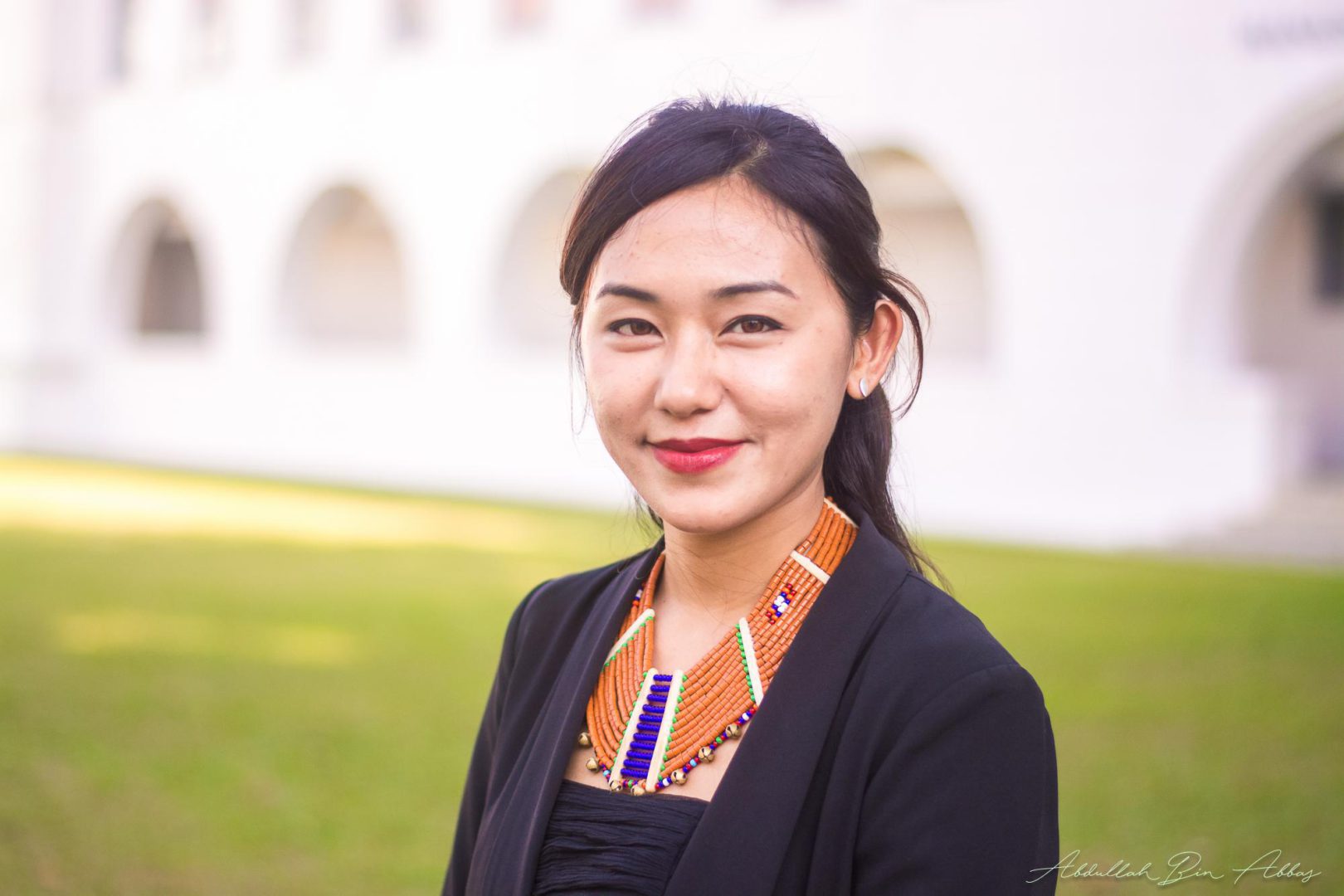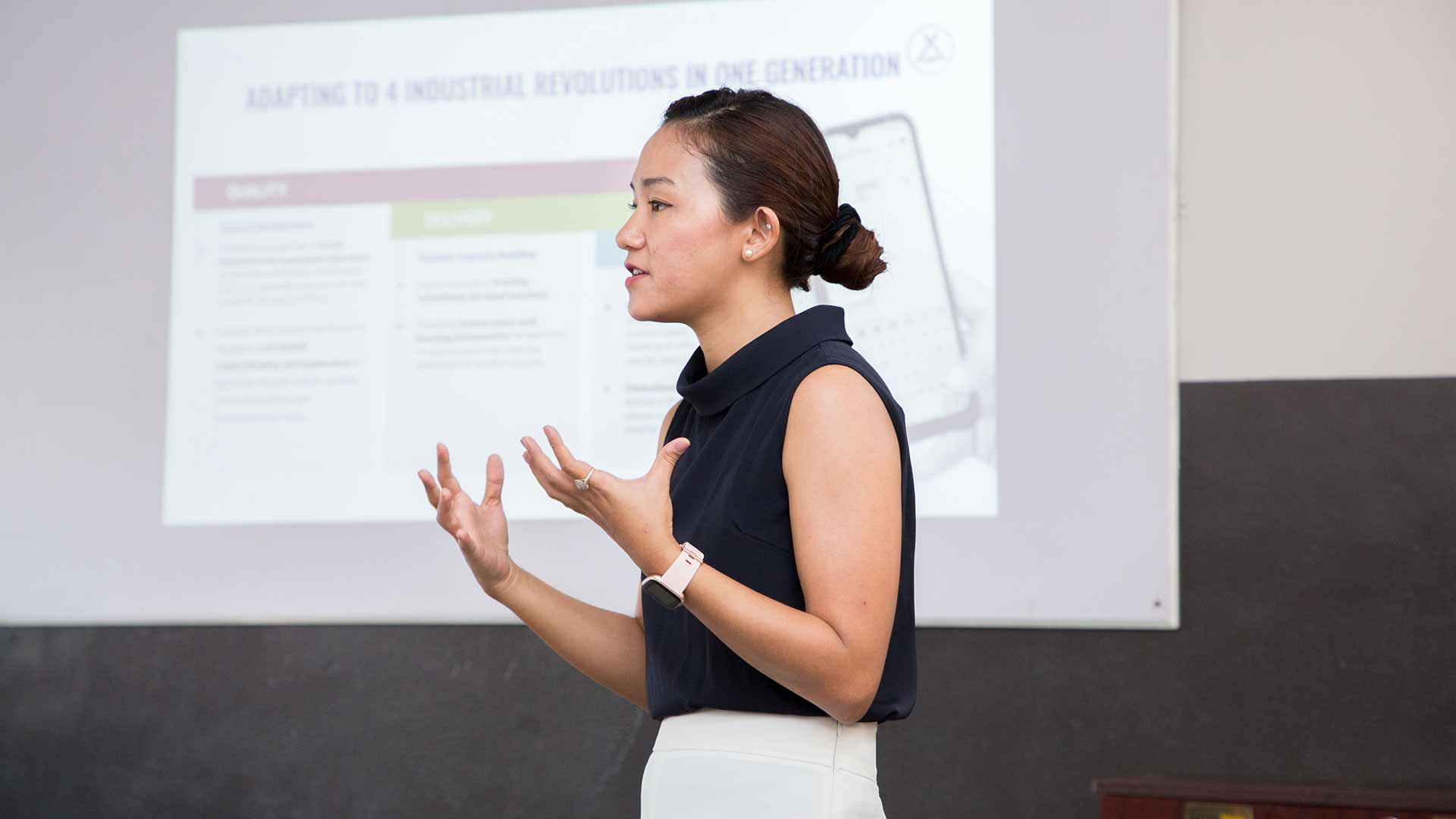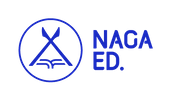


Shiroi Shaiza (MPA 2020) is the founder of NagaEd, an education technology provider that delivers teacher training courses and digital learning systems to tribal and indigenous communities.
I’m from Nagaland, a small tribal state in northeast India that borders Myanmar. We’ve had a long history of conflict in our region, which has led to a lack of infrastructure and a paucity of opportunities here.
My grandmother was Nagaland’s first female member of parliament during a state of emergency in India, a very difficult time in our history. She was also an educator, and she always believed in education as the ‘great emancipator’—that it could lift our community out of poverty and take us to the next level.
Ironically, I never thought my own journey would involve bringing education to others. My background is in business administration, and I worked in an NGO that provided services to Nagaland’s small business owners. I might have continued along that path, but then I heard about the LKY School from a close friend, who’s also an alumni. She had started her own organisation to develop the smaller cities in India, and she recommended that I apply for a scholarship from LKYSPP as she believed the opportunity would accelerate my work in bringing change to my community.
When I looked at the course offerings, I was immediately drawn to the MPA programme because it gives a deeper understanding of policy, while also preparing one to be a leader through its management and leadership curriculum. I applied for the scholarship and was accepted, which gave me the confidence to leave my comfort zone in Nagaland.
When I first arrived in Singapore, I had a narrow view of the world—I couldn’t see the big picture of how our actions could translate into policies for community development. I was also scared to speak up, especially because 90% of my classmates were administrators! I thought that my grassroots work wasn’t ‘significant’ enough to share.
But through conversations with my roommates, classmates, and faculty members, I discovered that the exchange of experiences—including my own—was essential for learning. By opening up to interact with a global cohort of the best minds and leaders, I was invigorated with a sense of hope and possibility. It gave me the courage to take the bold step of starting something on my own, and that’s when Covid-19 hit.

Shiroi at a teacher training workshop
I was still studying in Singapore but tracking developments back home, and I came across a survey conducted across northeast India at the start of the pandemic, where people were asked about their fears. It turned out that the number one concern wasn’t access to healthcare or livelihoods. Instead, people were most worried about access to education—or specifically, their children’s education.
During the Covid-19 lockdown, my partner and I also saw how our own nieces and nephews were affected by school closures. That’s when we started talking to institutions and educators to identify the problems that lay ahead. We learned that while there were thousands of edtech companies in the world, their services were hardly being adopted in tribal and indigenous communities like Nagaland. We felt moved to step forward and help out, and that’s why we set up NagaEd, a digital education company that provides quality blended education solutions for tribal and indigenous communities, to bring together both online and in-person learning.
For those in developed countries, it’s hard to imagine the slow process of starting something in a place like Nagaland, where there’s no ecosystem for businesses. The biggest employer in our state is the government, and the private sector barely exists. Because it’s a nascent economy, even going to the bank can be a challenge. In fact, it took us eight months to get a corporate credit card, because the bank had never opened an account for a private company before, and they didn’t know what to do!
On top of that, we didn’t have the human resources for a digital education business. Luckily my partner was in Australia at the time, so we paired with Australian experts to create and run our teacher training programmes, and today we have local digital learning specialists who are going to schools and equipping more teachers to use our service.
I’m also happy to announce that NagaEd has become the first Naga company to secure foreign funding. We didn’t have a model to follow, and the compliances for foreign investment were stringent, but we were determined to see it through because we weren’t just doing it for ourselves. For an economy to grow, you need foreign investment, and we wanted to change the mindsets of our people, so that they too could start looking at opportunities beyond our shores.
Would I call this our success story? NagaEd has provided resources to over 7,000 teachers and students in a year, and recent surveys indicate a 95% student satisfaction rate. This makes us happy, but instead of racing to scale up, we’re choosing to focus on the quality of our programmes and the learning outcomes. We want to update our curriculum to make sure it delivers on academics, as well as use it to impart lessons that will be useful not just for work, but for leading a meaningful life. The way I see it, success is less about chasing numbers, and more about bringing value and hope to a community that needs it most.
NagaEd is a leading digital education company that provides learning and teaching solutions for students, teachers and institutions through modern and digitally enabled educational experience. We create a learning society where all Nagas are provided equal opportunity to access quality education resources.
